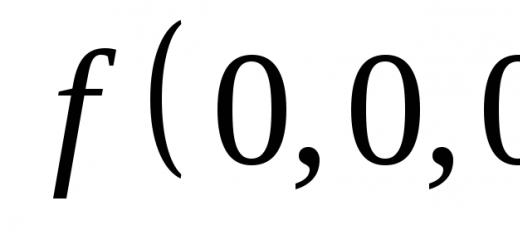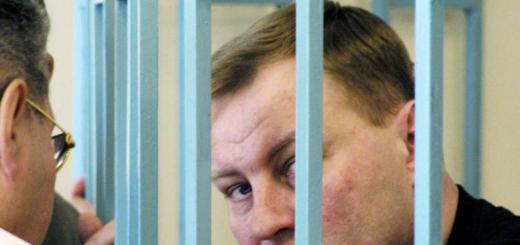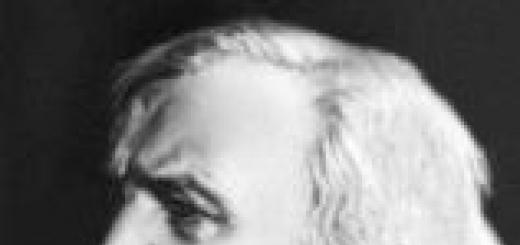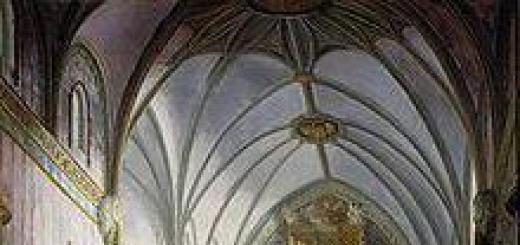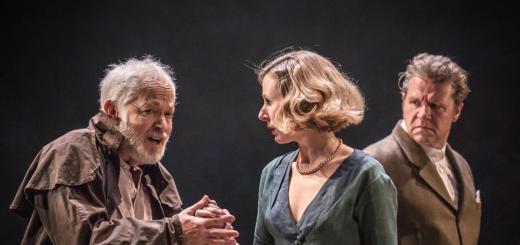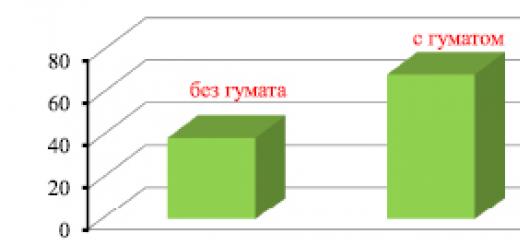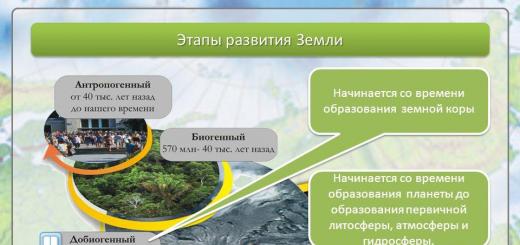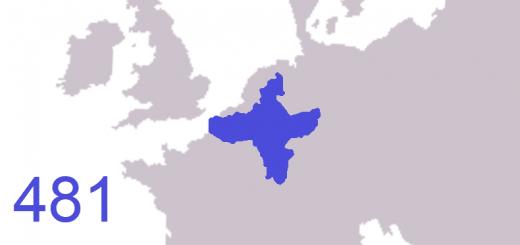Since the 15th century it was called the “embassy road”. Whoever walked along it, even travelers from distant Venice came to bow to Ivan III. Foreign ambassadors, diplomats, merchants were drawn to the Russian principalities, and their path, of course, was not easy.
The road was not particularly straight. In those distant times, people walked along rivers, through difficult crossings on the Dnieper, through dense forests and swamps. In winter there was no thaw, and foreign ambassadors raced to the Russian prince in sleighs. They had to spend the night in the forest near the fire, wrapped in animal skins, or in a random hut. Meanwhile, it was the shortest and quick way get to Moscow, unless, of course, you freeze in the thicket and run into robbers.
After Ivan the Terrible established the sovereign's Yamsk service in 1570, communications began to improve, and the roads gradually began to live on through extortions from noble travelers. However, when Marina Mnishek in 1606 hurried to her wedding with the new Russian Tsar Dmitry Ivanovich, better known later as False Dmitry, she wrote in her diary: “The road is disgusting, I counted more than forty-five bridges.”
The main “west” for Rus' at that time was, of course, the Polish-Lithuanian Commonwealth, which Peter the Great said well a little later - “The Enlightenment of our ancestors did not penetrate further than Poland.” But it also went to Poland along this road. Until the 16th century, Smolensk passed from hand to hand, and for the most part belonged to the Polish-Lithuanian Commonwealth. When Smolensk was finally recaptured, archival documents information appeared about the construction of a new Smolensk road. (now, of course, this is the old road).

Under Catherine, such a wonderful innovation appeared as wayposts. Thanks to this, Count Cagliostro, who received the highest audience with the Empress, was able to pinpoint the mile where the wheel of his carriage fell off and part of the luggage was lost...

After the War of 1812, the Smolensk men, especially the coachmen, gave great color to the road, who were full of anecdotes and legends about the Napoleonic army and about Napoleon himself. How Napoleon confused a goat with a Cossack, how French carts with boots got stuck at crossings. How the whole village hid from the Frenchman in a ravine along with all the cattle, and so on...
By the way, in his letters to Josephine, Bonaparte describes all the road difficulties as a mere trifle. The most long-lasting road legend was associated with the memoirs of the general and writer Comte de Segur, published in 1824. During the retreat, he was in Napoleon's retinue. The most intriguing in his book was the following phrase: “From Gzhatsk to the Mikhailovskaya village between Dorogobuzh and Smolensk, nothing remarkable happened in the imperial column, except for the fact that they had to throw the loot taken from Moscow into Lake Semlyovskoye: guns and ancient weapons were sunk here , Kremlin decorations and a cross from Ivan the Great".

IN Soviet time, and today they tried to find the treasure. But Lake Semlyovskoe, which looked more like a swamp even under Napoleon, was actually lost among the swamps. There isn't even a name left. However, there are still romantics who are still looking for this lake.

In the first half of the 19th century, an ordinary Russian story happened on the Smolensk road. Of course, in the style of Gogol's auditor. And it ended with a big scandal and a trial of a certain Khmelnitsky, at that time the governor of Smolensk. For several years, officials carried out costly bridge repairs and road reconstruction, mostly on paper. Having found out that they allegedly spent thirty-five thousand rubles for each mile, which is 10 times more expensive than real costs, Nicholas I exclaimed:
“It’s cheaper to pave this road with silver rubles than with stone!”
And yet, after the War of 1812, the road from Smolensk to Moscow was straightened and repaired. Inns and postal stations appeared on it. Residents of surrounding villages all over the world built floating bridges across the Dnieper. Villages and towns on the banks of the Smolensk road experienced unprecedented prosperity... Then the revolution broke out, and the space was filled with new people. The road itself was in a hurry to change.
Two hundred years ago, Napoleon began a war with Russia, which ended in his - for many unexpected - defeat. What happened main reason defeats: people, winter or Russian god?
In the year of the bicentenary of Napoleon’s Russian campaign, which ended in the defeat of the “grand army,” many books telling about this campaign are being published in Germany. These are monographs of German historians, and translations, and reprints, multi-page scientific works and popular publications. Their authors ask the same question as Pushkin in Eugene Onegin:
Thunderstorm of the twelfth year
It has arrived - who helped us here?
The frenzy of the people
Barclay, winter or Russian god?
A bone thrown to Napoleon
What was the reason for the defeat of Napoleon’s “great army”? No one gives a definite answer. Some believe that main role Poor preparation for the Russian campaign, Napoleon’s excessive self-confidence and the severity of the Russian climate (“winter”) played a role. Other historians particularly highlight the bravery of Russian soldiers and the unprecedented patriotic upsurge (“the frenzy of the people”). Still others write with admiration about the brilliant tactics of Barclay de Tolly and later Kutuzov, who did not engage in the decisive battle and exhausted the enemy right up to Borodin. Thus, Adam Zamoyski calls the decision to “throw a bone” to Napoleon, giving him Moscow, “brilliant.” The fourth object, as they say, on all points, except for the steadfastness of the Russian army (no one disputes this).
The cold in 1812 actually began earlier than usual - in October. But the fate of Napoleonic army was decided by that time. Its remnants were already retreating in complete disorder from Moscow. The catastrophe broke out much earlier - in fact, even before the Battle of Borodino. When preparing his campaign in Russia, Napoleon, of course, took into account some Russian characteristics, but not all.
Russia had neither such a population density as in Central and Western Europe, nor such a high standard of living as there. Poor peasants and a few, also not very rich, landowners could not feed hundreds of thousands of Napoleonic soldiers. As soon as they settled down for the night, they immediately went in search of provisions, fleecing the local population to the bone and causing self-hatred, which soon came back to haunt them with the “club of the people’s war.”
Fools and roads?
Bad roads and vast distances led to the fact that the convoys prepared in advance were left far behind the “great army”. Many of them are stuck in Poland and Lithuania. Suffice it to say that at the beginning of 1813, the Russian army, already advancing and chasing the French, captured four million portions of bread and crackers, almost the same amount of meat, alcohol, wine, thousands of tons of uniforms and various military equipment in Vilna alone. All this was prepared by the French for the Russian campaign, but never reached the combat units.
The death toll of cavalry and artillery horses, which, like people, had to rely only on pasture, was on a colossal scale. Several tens of thousands of horses did not even reach Smolensk, which significantly weakened Napoleonic army.
In addition, she was decimated by typhus and various infectious diseases. Morale fell already in the first weeks of the campaign, the number of sick people was in the tens of thousands. Shortly before the Battle of Borodino, it was established that of the 400,000-strong army, only 225,000 people remained in the ranks. The light cavalry, for example, lost half of its strength. And according to the calculations of French lodgers, which Dominic Lieven cites in his book “Russia against Napoleon,” 50 thousand people deserted from Napoleon’s army in the first month and a half alone.
One of the reasons for the mass desertion was that the French army was only half French. Many battle-hardened veterans retired at the end of 1811, they were replaced by voluntarily-compulsorily mobilized Italians, Dutch, Germans, Swiss, Belgians... However, as historian Daniel Furrer writes, many of these “allies” fought very brave. Of the 27 thousand Italians, only about a thousand returned home after the Russian campaign. And out of 1,300 Swiss soldiers, about a thousand died covering the crossing of the Berezina during the retreat of the “great army.”
Germans against Germans
The Germans fought on both sides. The German kingdoms and principalities were partially occupied by the French, and partially - like Prussia - were forced under pressure from Napoleon and the threat of occupation to become his allies. 30 thousand Bavarians, 27 thousand soldiers and officers from the Kingdom of Westphalia, 20 thousand Saxons and the same number of Prussians took part in the Russian campaign. Bonaparte especially did not trust the “allies” from Prussia, which had recently been an ally of Russia, and, just in case, gave the Prussian division under the command of a French marshal.
As for the Russian army, it included a special Russian-German Legion, which was formed, in particular, from hussars and infantrymen who defected to Russia after Napoleon’s invasion. By the end of the campaign, the legion numbered almost 10 thousand people: two hussar regiments, two infantry brigades, a company of rangers and a horse artillery company. The units were commanded by Prussian officers, and the entire legion was commanded by Count Ludwig Georg Wallmoden-Gimborn.
Another topic that especially interests German historians is: who is to blame for the fire of Moscow? Who set it on fire when Napoleon's army entered Moscow: French soldiers, Governor General Count Rostopchin, Russian spies? For Anka Muhlstein, author of the book “Moscow Fire. Napoleon in Russia,” there is no doubt: Moscow was set on fire on the orders of Fyodor Rostopchin, which he himself boasted for a long time. Tsar Alexander, by the way, was very dissatisfied. Still would! In Moscow, almost six and a half thousand houses out of nine thousand, more than eight thousand shops and warehouses, and more than a third of churches burned down. Two thousand wounded Russian soldiers died in the fire, whom the retreating soldiers did not have time to take with them...
A significant part of the book “Moscow Fire”, like other works telling about the war of 1812, is devoted to the Battle of Borodino. And here the number one question is: the losses of the parties. According to the latest data, the French lost 30 thousand people (about one in five), the Russians - about 44 thousand (one in three). Unfortunately, there are pseudo-historians in Russia who do their best to downplay Russian losses and exaggerate French ones. Besides the fact that this is not true, it should be said that it is completely unnecessary. The statistics of losses in no way detracts from the heroism of the participants in the Battle of Borodino, nor does the fact that it was formally won by Napoleon, who eventually occupied Moscow. But this victory was pyrrhic...
These were the last, final moments of the Battle of Borodino: the Russian soldier watched with his own eyes precisely in the last hours battles that 1) cavalry, 2) artillery and 3) infantry were at their best.
And when the Russian army then found out (and saw) that the French had left at night and at dawn first with bloody field, then no later boasting of French bulletins and French historians could in the least shake her conviction that the victory that day was won by the Russians and no one else.
And no lie of the enemy, no efforts of enemies and slanderers and haters of Kutuzov, Russian and foreign, no system of distortion and silence on the part of both foreign historians and some representatives of the old, bourgeois (and noble) school could and cannot diminish the great merit of the Russian soldier, Russian command staff and the great Russian commander on the day of Borodin.
But the main thing that Napoleon lost as a result of the Battle of Borodino was the strategic initiative and the opportunity to return it to this war. If Napoleon had paid for his two “successes” not such a terrible price as he actually paid, if he had taken Bagration’s flushes and established himself on them after the first, and not after the seventh (or, more precisely, eighth) attack on them, moreover, the flushes were constantly changing hands and only at 11 1/2 o’clock in the morning were they finally abandoned by Konovnitsyn, or if Viceroy Eugene had taken possession of Kurgan Heights and the lunette (Raevsky’s battery) directly or at least soon after he managed to take possession village of Borodino, in the morning, and not at 4 1/3 o'clock in the evening, then he would not have placed most of his best troops, i.e. 58 1/2 thousand people killed and wounded, whom he left on the Borodino field (out of 136 thousand who entered the battle in the morning) - then and only then could he even try to fight for the initiative. The fact of the matter is that Borodino, even from the point of view of some French, who are not lying in the interests of creating a legend, but who want to give themselves a sober account of the situation that developed after the battle, turned out to be absolutely defeat French army in the exact sense of the word, but not at all an “indecisive battle,” as it was called for so long; Napoleon's well-known words that in the Battle of Borodino the French showed themselves worthy of victory, and the Russians showed themselves worthy of being called invincible, very clearly show that he also considered Borodino his failure. Indeed: after all, the first part of this phrase says that the French fought with brilliant courage under Borodin, fulfilled their military duty no worse than in Italy, Syria, Egypt, Austria, Prussia, where under his leadership they won enormous victories. to his historical significance victories that created his pan-European dominion - and the French army, in his opinion, was worthy and this time to win. Was worthy but didn’t win! The second part of this phrase is not only essentially true, but also sums up the significant result of the great Borodino competition in the mouth of Napoleon. The Russians were near Borodino invincible. Napoleon was not only very strict, but also extremely stingy in his assessment of the enemies he encountered during his long military life in three parts of the world: in Europe, in Africa, in Asia and again in Europe; he fought against many nations. But invincible he named only Russians and no one else. In this case, hostility, politics, statesman fell silent before the involuntary admiration of the commander-strategist.
We move from Napoleon to Kutuzov.
First of all, the initiative of the battle belonged to Kutuzov, just as he took responsibility for the final choice of position. And this chosen position turned out to be, in fact, as it emerged from Kutuzov’s report to the Tsar, the best possible at that moment for Kutuzov to give battle. All of Kutuzov’s orders were marked both before and during the battle with deep thoughtfulness. He starts a battle at Shevardin and thereby gives the opportunity to continue and complete or almost complete the strengthening of the position at the Bagration flushes on the left flank and turn Raevsky’s battery into a formidable “closed lunette” by dawn on August 26 (September 7). Kutuzov perfectly unravels Napoleon’s thought, directly designed to confuse the Russian commander-in-chief: Kutuzov, without leaving the fortification of the center and right flank and after a hot battle near the village of Borodino and the capture of the village by Viceroy Eugene, even strengthening the defense - at the same time time constantly orders to send reinforcements to help Bagration on the left flank, which was abundantly supplied with troops even before the battle. Moreover: Tuchkov 1st was placed by him near Utitsa (“in ambush”), so that right moment rush to the aid of the southern of the three flushes. All this forced Napoleon to fight during the battle and especially until noon on two fronts at once: on the central flank near the central battery (Raevsky) and on the left flank, where resistance to attacks continued, first at the flushes, then at the Semenovskaya Hill. In these bloody battles, the excellent French cavalry was broken. The reader will find in the literature about the Battle of Borodino a frequent reference to the fact that by the end of the war of 1812 horses were poorly shod “ big army“Napoleon died in the thousands because they could not cope with the snow-covered, icy winter roads, where they slipped and fell at every step. Here it must be said that already in the beginning and middle of September, in wonderful summer weather, where there was no trace of “frost”, “snow”, or “ice”, in colossal cavalry battles at the flushes, at Semenovsky (mainly at the Semenovsky ravine. - Ed.), the color of the French cavalry was exterminated at Kurgan Heights. From the dawn of September 7 until the night of the same day, until the battle, Napoleon's cavalry is one thing, but after battles are something completely different. Of course, lack of food, poor forging and, in general, all the subsequent disasters of the French army finished off the cavalry during the retreat, where entire regiments had to be dismounted and abandoned (as in the four-day battle of Krasnoye) multi-gun batteries to the mercy of fate due to the impossibility of organizing horse traction; The irreparable losses in the Battle of Borodino of the French cavalry, which turned out to be incomparably weaker than the Russian cavalry by the end of the battle, put an end to the cavalry as one of the main forces of the army on which Napoleon could henceforth count. Note that in the midst of the battle, Kutuzov, at a decisive moment, when he needed to support both the left flank and the center, instructed the Russian cavalrymen of Uvarov and Platov’s cavalry to carry out the sabotage he had invented on the left flank of the enemy army; This largest cavalry raid was liquidated not by the French cavalry at all, but by the order of Kutuzov, who interrupted the ensuing battle for his general tactical reasons. Let us recall a very significant and very characteristic circumstance, forgotten by all French and insufficiently appreciated by some Russian authors, that Uvarov, carried away and feeling strongly about himself, allowed himself not to immediately carry out the order to return, and the commander-in-chief was forced to repeat his order and insist on its implementation.
Above, I already spoke about the corps of Tuchkov 1st, which was placed, by personal order of Kutuzov, in the south of the left wing of the Russian troops, in the bushes and forest, which was not provided for by the disposition previously drawn up and already distributed throughout the army, and if this did not bring all the expected benefits , then only through the fault of Bennigsen. The breadth of outlook characteristic of great commanders covered enormous stretched lines, and Kutuzov’s concern for the Russian army to be able to successfully withstand fierce attacks on the left flank and in the center as much as possible was precisely what gave rise to the sending of Uvarov and Platov not to flushes and not to the center of the Russian disposition (i.e., not to Kurgan Heights), but to the rear of Napoleon’s left flank, where the reserves were stationed. His order caused the confusion caused by the suddenness and absolute surprise of the cavalry attack on this distant "quiet sector" of the French lines to alarm Napoleon, and he suspended the attack in the center for two (more precisely, 2 1/2) hours and reduced offensive on the left flank of the Russian army. And nothing else in this moment Kutuzov did not need anything from this planned and timely interrupted demonstration.
First, about human losses. There were about 170 thousand people in the Russian 1st and 2nd Western armies. After Borodin, about 60 thousand people remained in them, at the start of the counter-offensive in October 1812 - more than 90 thousand people, when the Russian army reached Vilno in December 1812 - about 20 thousand people.
Total losses in killed, wounded and sick by the Russian regular army alone amounted to about 180 thousand people.
We must also remember about the militia: in 1812, about 400 thousand people were recruited into it. The Smolensk, St. Petersburg, Novgorod and Moscow militias took part in battles immediately after their formation. The Novgorod, St. Petersburg and Moscow militias were the first to be disbanded to their homes - at the beginning of 1813 and arrived in their cities in the summer. Militia from other provinces took part in the Russian army's foreign campaign. Overall, militia casualties most likely amounted to two-thirds of total number- about 130 thousand people.
In this regard, the war ended in Russia's favor. But there were also huge losses among the civilian population. The book “Smolensk and the Province in 1812”, published in 1912, states (according to calculations made in 1814) that “from war, pestilence and famine” the decline in the male part of the population of the Smolensk province alone amounted to 100 thousand people. Another question is that the decline in peasants was somehow replenished by prisoners, of whom there were about 200 thousand people left in Russia and who were all registered as peasants (except for the Poles, who were registered as Cossacks).
There was also material damage, truly gigantic, because along the line of hostilities all towns, villages and hamlets were devastated and most were burned.
In Moscow alone, damage was estimated at more than 340 million rubles in silver (and this despite the fact that a considerable number of claims made by citizens were rejected), and in the Smolensk province, which suffered the most from the war, about 74 million rubles. The most developed part of Russia lay in ruins.
In Russia, one of the results of the war was to be the long-awaited changes in the lot of serfs. The expectation of freedom has long been seething within the people. A contemporary of the 12th year, Nikolai Turgenev, wrote: “When the enemy left, the serfs believed that by their heroic resistance to the French, their courageous and resigned enduring of so many dangers and deprivations for the general liberation, they deserved freedom. Convinced of this, in many places they did not want to recognize the power of the masters.”
At the same time, the people expected freedom precisely as a reward (in the same way, at the end of the Great Patriotic War, many expected a softening of the regime, believing that the heroism and loyalty of the people could not leave Stalin indifferent).
However, if those at the top were thinking about such a reward, then after the expulsion of Napoleon it probably seemed excessive. Instead of one large gift in the form of the abolition of serfdom, it was decided to make many small ones. By a national announcement of August 31, 1814 (it is in it that it is said: “And the peasants, our good people, may they receive their reward from God”), recruitment for 1814 and 1815 was canceled, all peasants were forgiven arrears and fines from all types of payments. Earlier, in May 1813, Alexander I ordered “that all sorts of searches should be abandoned and no cases should be opened against them.”
But it was not possible to make a white horse out of many white lambs.
The peasants did not understand that all this was their reward; they decided that the will had been declared, but the landowners were hiding it.
Pre-revolutionary historian Vasily Semevsky in his study “Unrest of peasants in 1812 and associated with the Patriotic War” describes how in April 1815 in Nizhny Novgorod Dmitriev, a servant of an officer who had arrived from St. Petersburg, was arrested, telling the peasants that the manifesto on granting freedom to all peasants had already been read in the Kazan Cathedral in St. Petersburg. For his words, Dmitriev received 30 lashes and was sent to military service with credit to the landowner for the recruit.
Some nobles and landowners nevertheless felt ashamed: somehow it was not good to leave the people with nothing. In 1817, an idea was born: as a reward for loyalty shown in 1812, peasant children of both sexes born after 1812 should be declared free. However, this method did not provide for the allocation of land to the peasants upon liberation and was not put into practice.
Emmanuel Richelieu, who was the mayor of Odessa in 1812, wrote in a letter: “If Napoleon is a man, then he will enter Moscow and die. But what if he is not a man?!”... 1812 showed that Napoleon was a man, and this was perhaps the most important result, a real discovery, the same as Newton’s law universal gravity when the seemingly obvious suddenly becomes clear to everyone.
The discouragingly terrible death of the Great Army made a colossal impression on the whole of Europe. Not a single invasion has ever ended like this - with the almost complete death of an unprecedented army. The invasion disappeared into the Russian land like sand. It became absolutely obvious that Russia was under the protection of the Higher Powers, and Tsar Alexander was the conductor of God’s will. And if so, then we need to go with Alexander, after him.
Most likely, this is why the Prussian king decided to do something that, in general, was difficult to expect from him: in 1813, he not only took the side of the coalition, but also issued the Edict of Landsturm, which ordered every citizen of Prussia to use all means, in any case. reason and any weapon to resist the enemy.
“You are amazed when you see the name of a legitimate king under this kind of call for guerrilla warfare. These ten pages of the Prussian code of laws of 1813 (pp. 79-89) definitely belong to the most unusual pages of all published laws of the world,” a German military historian wrote already in the 20th century in his lecture “The Theory of the Partisan.”
After 1812, the very nature of the fight against Napoleon changed. In 1805 and 1807, Russia treated this struggle without ardor, ending it with peace at the first opportunity.
So, in 1812, Kutuzov proposed stopping at the Russian borders, again leaving Europe alone with Napoleon, but Alexander ordered to go further and thereby predetermined the outcome of the battle - without this determination, which was given to Alexander in the 12th year, there would simply be no foreign campaigns , and Napoleon would have reigned until old age.
The fact that it was Russia and the Patriotic War that were the catalyst for victory was understood and accepted in Europe. Russia's influence on European affairs has increased enormously. Emperor Alexander became the first monarch in Europe. It was he who distributed the “booty” at the Congress of Vienna, and, for example, when Prussia reached out to Alsace, Alexander declared that the original French territories would remain with France. It is unlikely that he cared about France - most likely, he really liked the role of a European judge.
The fight against Napoleon forced his opponents to rise above themselves. Those born to crawl suddenly managed to take off. But this was not the main result of the era, but the fact that, having soared into the stratosphere, Tsar Alexander, the Prince Regent, King Frederick William and Emperor Franz hastened not only to return from heaven, but also to return their soaring peoples to earth. Discussing at the Congress of Vienna what Europe should be like after the war, they cemented not the Europe that defeated Napoleon, but the one that he defeated over and over again. They wanted to remain in the past, and in this desire they refused even the path of social progress that they, willy-nilly, had to go through during the 15 years of struggle with Napoleon.
However, it remains to be seen whether they themselves considered this path to be progress: there were many different points of view on the reasons for the victory then, 200 years ago.
“Many, seeing a miracle in the salvation of Russia, short-sightedly concluded that under the protection of God there is exactly the Russia that it was at the time of Napoleon’s invasion, and that it is downright absurd to break the centuries-old foundations that brought up and put into use such a might of the state...” - this is how it is written in the article “Results of 1812”, published in the anniversary issue of the newspaper “Altai Life” published in Barnaul in 1912. And further: “Emperor Alexander himself fell into mysticism and, trying to reduce the entire administration of the state to the fulfillment of the clearly expressed will of God, he appointed Arakcheev, who was alien to any freethinking (...) at the head of the government. There was no more talk about any reforms. The internal development of Russian statehood stopped immediately and for a long time. It took two fifty years and two unsuccessful wars to bring Russia to that point political development, on the threshold of which she stood on the eve of 1812.”
Viewing Napoleon as a product of revolution, the victorious powers sought a way to avoid revolutions.
There are different approaches here: you can rely on bayonets, or you can rely on freedom and mutual respect between citizens and the state. The Congress of Vienna chose the first path, deciding that the victorious powers would jointly suppress any revolutionary uprising. The role of the main European gendarme was assigned to Russia, and in 1848-1849 the Hungarian Revolution was suppressed by Russian bayonets. Only after Crimean War The top of Russia began to recognize the need for change, but, quite possibly, it was already too late. Give the Russian people freedom and property early XIX century, by the beginning of the 20th century it would have been a different people - with its own political traditions, views and values, with what we now call “civil society”. It is likely that the vague Bolshevik “bright future” would have caused nothing but a skeptical grin among these people. And then - what if? — there would have been no revolution, and Soviet madness, and the Great Patriotic War, and many other troubles from which Russia still cannot recover...
When, under the Treaty of Paris of 1815, the Allies imposed an indemnity on France in the amount of 700 million francs, Alexander declared that Russia was renouncing its share. By this he showed that the war with Napoleon was fought not for the sake of booty, but for the sake of principles.
But it was precisely the principles by which life was built in that era that suffered an extremely heavy blow.
Both the results of the War of 1812 and the end Napoleonic era in general led to what can be called a crisis of the meaning of life. Before Napoleon and under him, the main thing for a person was to accomplish a feat, to win a place in history, to get his own piece of glory - the whole era rested on this, that’s why it became possible. The poet wrote: “I would like glory, but not for myself, but to illuminate the grave of my father and the cradle of my son with it.” Napoleon gave this opportunity. But there was too much glory, and due to overproduction, it did not bring those dividends (orders, money, titles, attention of women) that people could count on: the exploits became worthless. Napoleon devastated not only the material world of states, but also the internal spiritual world people: after him the world became empty and boring. For many thousands of people both in Europe and in Russia, the world collapsed precisely after the war ended.
But there were still a considerable number of those for whom the war was not enough. Decembrists in Russia, who under Soviet power regarded as the forerunner of the socialist revolution, in fact, most likely, they were simply trying to catch up with the departed train.
Senate Square was for them Toulon, which Prince Andrei seeks from Tolstoy in every shootout. “In 1414, the existence of young people in St. Petersburg was painful,” wrote the Decembrist Ivan Yakushkin. “For two years we had great events before our eyes and in some way participated in them (Yakushkin served in the Semenovsky Life Guards Regiment Patriotic War and the Foreign Campaign, was awarded the order St. George 4th degree and the Kulm cross. — Approx. author); Now it was unbearable to look at the empty life in St. Petersburg.” Some of the Decembrists in the Napoleonic years were too young and did not have time to shine, some shined, but believed that they deserved more than they received. "We will die! How gloriously we will die! - the Decembrist cried when he learned that there would still be an uprising. In 1812 he was 10 years old.
Herzen’s well-known formula that the Decembrists wanted to make a revolution “for the people, but without the people” is beautiful and very well obscures the fact that the Decembrists, in general, hardly thought about the people.
The abolition of serfdom, which was included in all the programs of the Decembrists, had long been a commonplace at that time. But the much more important issue of allocating land to the peasants was not considered at all in Sergei Trubetskoy’s “Manifesto to the Russian People,” while in the Constitution and Pestel’s “Russian Truth,” although it was considered, it was in such a way that the peasants received almost nothing. Indicative in this sense and personal experience Decembrists for the liberation of the peasants: Ivan Yakushkin, having decided to give his peasants freedom, left the land for himself. It was not only the peasants who did not understand Yakushkin, but the answer came to him: “... if we accept the method you propose, then others can use it to get rid of responsibilities regarding their peasants.” There really were responsibilities: for example, in a bad year, the landowner was obliged to feed the peasants at his own expense. So Herzen is most likely wrong on both counts: the Decembrists wanted to make a revolution not only “without the people,” but also not “for the people,” but for themselves.
That’s why they didn’t go on the attack on the morning of December 14, when they could still have succeeded, because by their standards they had already succeeded: a glorious death was all they needed from life. It is likely that Nicholas I guessed them - and executed only five, dooming the rest to a painful and, frankly, rather inglorious life.
Napoleon showed that it is possible to change the world. And he showed that the world is not actually turning upside down - everything has returned to normal.
The disappointment was massive. Compared to the background of the past era, all men seemed dwarfs. Lermontov, describing Pechorin, gave a portrait of one of the “children of 1812”, who searches and does not find the meaning of life. Pechorin is bored with life, he has nothing to live for. Pechorin throws himself under the bullets, but this does not warm his blood and does not advance his philosophy anywhere: “After all, nothing worse than death can happen - but you cannot escape death!” - the idea was long ago and very banal even in those days. Then Pechorin tries to fall in love with Princess Mary - but it turns out that he does not know how to love: he was not taught. (Love in its current understanding was rare then - men, in general, never had enough time for it, marriages were arranged by the parents of the bride and groom, and “children” almost always accepted the parental choice.) Lermontov himself was the same: he was not taught to love (by the way, drawing the line Pechorin - Vera, Lermontov is trying, at least in the story, to bring to the desired end his romance with Varvara Lopukhina, with whom he was engaged, but separated, and she married the rich landowner Nikolai Bakhmetev, 17 years older than her). Every war lost to the 12th year in comparison. Valerik was, of course, a brutal battle (Russians and Chechens fought with sabers for three hours; Lermontov wrote that “even two hours later the ravine smelled of blood”), but it could not even compare with any rearguard battle of the Patriotic War.
Apparently, Tolstoy had a similar feeling when he went to Sevastopol in 1854. He climbed onto the most disastrous 4th bastion (on some days up to two thousand enemy shells fell on the bastion) and wrote from there to his brother Sergei: “The spirit in the troops is beyond any description. During times Ancient Greece there was not so much heroism. Kornilov, touring the troops, instead of “Great, guys!” said: “You have to die, guys! Will you die?”, and the troops answered: “We will die, Your Excellency, hurray!”
And this was not an effect, but on everyone’s face it was clear that they were not joking, but for real, and 2200 had already fulfilled this promise.
A wounded soldier, almost dying, told me how they took the 24th French battery and were not reinforced; he cried bitterly. A company of sailors almost rebelled because they wanted to change them from the battery where they had stood for 30 days under bombs. Soldiers tear out tubes from bombs. Women carry water to the bastions for the soldiers. Many are killed and wounded. Priests with crosses go to the bastions and read prayers under fire. In one brigade there were 160 people who, wounded, did not leave the front. Wonderful time!..”
However, Sevastopol did not overshadow the Patriotic War - especially since Russia did not win. Instead of glory, the war brought disappointment and shame. “What to live for?!” - reflects on this when he returned home after Austerlitz, another shameful defeat for Russia. Perhaps Tolstoy recorded his and his peers' mood after the end of the Crimean War. He, like millions of other people in the post-Napoleonic era, needed an idea to justify his own existence. And Tolstoy came up with this idea.
In the famous episode with the oak tree, Prince Andrei first decides that his time has passed (“let others, young people, again succumb to this deception, but we know life - our life is over!”), and then, seeing that the oak tree has thrown out its young foliage, he suddenly realizes that life goes on. True, there is little certainty in this decision (“everyone must know me, so that my life does not go on for me alone, so that they do not live like this girl, regardless of my life, so that it is reflected on everyone and that they all live with me!”), but the most noticeable thing is this:
“Toulon,” which Prince Andrei was looking for in 1805, is now gone.
He stopped looking for exploits - he decided to just live, just live for himself! True, Prince Andrei himself did not have time to live for himself. But Bezukhov and Natasha, who married him, are just an example of this idea: they simply live for themselves. Not for the world and not for history, not for God, but for ourselves. They love each other, make children, wash diapers...
Writer Mark Aldanov in his work “The Mystery of Tolstoy” notes that the writer in “War and Peace”, using the example of the Bolkonskys and Rostovs, tried to understand which life is better - spiritual or material. Aldanov notes that the Bolkonskys, in whose family there is “intense spiritual work,” are all unhappy. The Rostovs, where “no one ever thinks, they even think only from time to time,” on the contrary, “are blissful from entering life until its last minute.”
The meaning of life is life itself, and not exploits, not valor and not glory.
Tolstoy proposed this discovery to people, supplementing it with the idea of historical fatalism, according to which everything will be as it will be. Tolstoy reduced the meaning of human life to the meaning of the life of an ant. But everyone believed him: both because it seemed so great to live for oneself, and because they had already walked the path of exploits, and this path did not give anything. In today's Russia, this view of life, due to the lack of religion and the moral principles supported by it, has taken on especially difficult forms.
Someone, shielded from us by the initials “P.K,” wrote in 1912 in the provincial newspaper “Life of Altai”: “We see, therefore, that even the saving and glorious war of 1812 for Russia (...) brought evil in its wake, and no small evil.
May we be allowed to conclude that all war is evil, and to wish that the further progress of mankind will save us from the very possibility of the emergence of this evil.”
“The RUSSIANS HAVE THE GLORY OF BEING UNDEFEATED”
After the battle of Smolensk, the retreat of the Russian army continued. This caused open discontent in the country. Under pressure from public opinion, Alexander I appointed commander-in-chief of the Russian army. Kutuzov’s task was not only to stop Napoleon’s further advance, but also to expel him from Russian borders. He also adhered to retreat tactics, but the army and the whole country expected a decisive battle from him. Therefore, he gave the order to look for a position for a general battle, which was found near the village. Borodino, 124 kilometers from Moscow.
The Russian army approached the village of Borodino on August 22, where, at the suggestion of Colonel K.F. Tolya, a flat position with a length of up to 8 km was chosen. On the left flank, the Borodino field was covered by the impenetrable Utitsky forest, and on the right, which ran along the bank of the river. Kolochi, Maslovsky flashes were erected - arrow-shaped earthen fortifications. In the center of the position, fortifications were also built, which received different names: Central, Kurgan Heights, or Raevsky’s battery. Semenov's (Bagration's) flushes were erected on the left flank. Ahead of the entire position, on the left flank, near the village of Shevardino, a redoubt also began to be built, which was supposed to play the role of a forward fortification. However, the approaching army of Napoleon, after a fierce battle on August 24, managed to take possession of it.
Disposition of Russian troops. The right flank was occupied by the battle formations of the 1st Western Army of General M.B. Barclay de Tolly, on the left flank there were units of the 2nd Western Army under the command of P.I. Bagration, and the Old Smolensk Road near the village of Utitsa was covered by the 3rd Infantry Corps of Lieutenant General N.A. Tuchkova. Russian troops occupied a defensive position and were deployed in the shape of the letter "G". This situation was explained by the fact that the Russian command sought to control the Old and New Smolensk roads leading to Moscow, especially since there was a serious fear of the enemy’s outflanking movement from the right. That is why a significant part of the corps of the 1st Army was in this direction. Napoleon decided to deliver his main blow to the left flank of the Russian army, for which on the night of August 26 (September 7), 1812, he transferred the main forces across the river. I pound, leaving only a few cavalry and infantry units to cover my own left flank.
The battle begins. The battle began at five o'clock in the morning with an attack by units of the corps of the Viceroy of Italy E. Beauharnais on the position of the Life Guards Jaeger Regiment near the village. Borodin. The French took possession of this point, but this was their diversionary maneuver. Napoleon launched his main blow against Bagration's army. Marshal Corps L.N. Davout, M. Ney, I. Murat and General A. Junot were attacked several times by Semenov flushes. Units of the 2nd Army fought heroically against an enemy superior in numbers. The French repeatedly rushed into flushes, but each time they abandoned them after a counterattack. Only by nine o'clock did Napoleon's armies finally capture the fortifications of the Russian left flank, and Bagration, who at that time tried to organize another counterattack, was mortally wounded. “The soul seemed to fly away from the entire left flank after the death of this man,” witnesses tell us. Furious rage and a thirst for revenge took possession of those soldiers who were directly in his environment. When the general was already being carried away, cuirassier Adrianov, who served him during the battle (giving him a telescope, etc.), ran up to the stretcher and said: “Your Excellency, they are taking you to treatment, you no longer need me!” Then, eyewitnesses report, “Adrianov, in sight of thousands, took off like an arrow, instantly crashed into the ranks of the enemy and, having hit many, fell dead.”
The fight for Raevsky's battery. After the capture of the flushes, the main struggle unfolded for the center of the Russian position - the Raevsky battery, which at 9 and 11 a.m. was subjected to two strong enemy attacks. During the second attack, E. Beauharnais' troops managed to capture the heights, but soon the French were driven out of there as a result of a successful counterattack by several Russian battalions led by Major General A.P. Ermolov.
At noon, Kutuzov sent the Cossacks cavalry general M.I. Platov and the cavalry corps of Adjutant General F.P. Uvarov to the rear of Napoleon's left flank. The Russian cavalry raid made it possible to divert Napoleon's attention and delayed a new French assault on the weakened Russian center for several hours. Taking advantage of the respite, Barclay de Tolly regrouped his forces and sent fresh troops to the front line. Only at two o'clock in the afternoon did Napoleonic units make a third attempt to capture Raevsky's battery. The actions of Napoleonic infantry and cavalry led to success, and soon the French finally captured this fortification. The wounded Major General P.G., who led the defense, was captured by them. Likhachev. The Russian troops retreated, but the enemy was unable to break through the new front of their defense, despite all the efforts of two cavalry corps.
Results of the battle. The French were able to achieve tactical successes in all main directions - the Russian armies were forced to leave their original positions and retreat about 1 km. But Napoleonic units failed to break through the defenses of the Russian troops. The thinned Russian regiments stood to the death, ready to repel new attacks. Napoleon, despite the urgent requests of his marshals, did not dare to throw in his last reserve - the twenty thousandth Old Guard - for the final blow. Intense artillery fire continued until the evening, and then the French units were withdrawn to their original lines. It was not possible to defeat the Russian army. This is what I wrote domestic historian E.V. Tarle: “The feeling of victory was absolutely not felt by anyone. The marshals were talking among themselves and were unhappy. Murat said that he did not recognize the emperor all day, Ney said that the emperor had forgotten his craft. On both sides, artillery thundered until the evening and bloodshed continued, but the Russians did not think not only of fleeing, but also of retreating. It was already getting very dark. A light rain began to fall. “What are the Russians?” - asked Napoleon. - “They are standing still, Your Majesty.” “Increase the fire, it means they still want it,” the emperor ordered. - Give them more!
Gloomy, not talking to anyone, accompanied by his retinue and generals who did not dare to interrupt his silence, Napoleon drove around the battlefield in the evening, looking with sore eyes at the endless piles of corpses. The emperor did not yet know in the evening that the Russians had lost not 30 thousand, but about 58 thousand people out of their 112 thousand; He also did not know that he himself had lost more than 50 thousand of the 130 thousand that he led to the Borodino field. But that he had killed and seriously wounded 47 (not 43, as they sometimes write, but 47) of his best generals, he learned this in the evening. French and Russian corpses covered the ground so thickly that the imperial horse had to look for a place to put its hoof between the mountains of bodies of people and horses. The groans and cries of the wounded came from all over the field. The Russian wounded amazed the retinue: “They did not emit a single groan,” writes one of the retinue, Count Segur, “perhaps, away from their own, they counted less on mercy. But it is true that they seemed more steadfast in enduring pain than the French.”
The literature contains the most contradictory facts about the losses of the parties; the question of the winner is still controversial. In this regard, it should be noted that none of the opponents solved the tasks set for themselves: Napoleon failed to defeat the Russian army, Kutuzov failed to defend Moscow. However, the enormous efforts made by the French army were ultimately fruitless. Borodino brought Napoleon bitter disappointment - the outcome of this battle was in no way reminiscent of Austerlitz, Jena, or Friedland. The bloodless French army was unable to pursue the enemy. The Russian army, fighting on its territory, was able to restore the size of its ranks in a short time. Therefore, in assessing this battle, Napoleon himself was most accurate, saying: “Of all my battles, the most terrible is the one I fought near Moscow. The French showed themselves worthy of victory. And the Russians have gained the glory of being undefeated.”
RESCRIPT OF ALEXANDER I
“Mikhail Illarionovich! The current state of military circumstances of our active armies, although it was preceded by initial successes, the consequences of these do not reveal to me the rapid activity with which it would be necessary to act to defeat the enemy.
Considering these consequences and extracting the true reasons for this, I find it necessary to appoint one general commander-in-chief over all active armies, whose election, in addition to military talents, would be based on seniority itself.
Your well-known merits, love for the fatherland and repeated experiences of excellent feats acquire you a true right to this power of attorney of mine.
Choosing you for this important task, I ask Almighty God to bless your deeds for the glory of Russian weapons and may the happy hopes that the fatherland places on you be justified.”
KUTUZOV'S REPORT
“The battle of the 26th was the bloodiest of all those in modern times known. We completely won the battlefield, and the enemy then retreated to the position where he came to attack us; but an extraordinary loss on our part, especially due to the fact that the most necessary generals were wounded, forced me to retreat along the Moscow road. Today I am in the village of Nara and must retreat further to meet the troops coming to me from Moscow for reinforcements. The prisoners say that the enemy loss is very great and that the general opinion in the French army is that they lost 40,000 people wounded and killed. In addition to Divisional General Bonami, who was captured, there were others killed. By the way, Davoust is wounded. Rearguard action occurs daily. Now, I learned that the corps of the Viceroy of Italy is located near Ruza, and for this purpose the detachment of the Adjutant General Wintzingerode went to Zvenigorod in order to close Moscow along that road.”
FROM CAULAINCUR'S MEMOIRS
“Never before have we lost so many generals and officers in one battle... There were few prisoners. The Russians showed great courage; the fortifications and territory which they were forced to cede to us were evacuated in order. Their ranks were not disorganized... they faced death bravely and only slowly succumbed to our brave attacks. There has never been a case where enemy positions were subjected to such furious and systematic attacks and that they were defended with such tenacity. The Emperor repeated many times that he could not understand how the redoubts and positions that were captured with such courage and which we defended so tenaciously gave us only a small number of prisoners... These successes without prisoners, without trophies did not satisfy him... »
FROM THE REPORT OF GENERAL RAEVSKY
“The enemy, having arranged his entire army in our eyes, so to speak, in one column, walked straight to our front; Having approached it, strong columns separated from its left flank, went straight to the redoubt and, despite the strong grapeshot fire of my guns, climbed over the parapet without firing their heads. At the same time, from my right flank, Major General Paskevich with his regiments attacked with bayonets into the left flank of the enemy, located behind the redoubt. Major General Vasilchikov did the same thing to their right flank, and Major General Ermolov, taking a battalion of rangers from the regiments brought by Colonel Vuich, struck with bayonets directly at the redoubt, where, having destroyed everyone in it, he took the general leading the columns prisoner . Major Generals Vasilchikov and Paskevich overturned the enemy columns in the blink of an eye and drove them into the bushes so hard that hardly any of them escaped. More than the action of my corps, it remains for me to describe in a nutshell that after the destruction of the enemy, returning again to their places, they held out in them until against repeated attacks of the enemy, until the killed and wounded were reduced to complete insignificance and my redoubt was already occupied by the General. -Major Likhachev. Your Excellency himself knows that Major General Vasilchikov gathered the scattered remnants of the 12th and 27th divisions and, with the Lithuanian Guards Regiment, held until the evening an important height, located on the left limb of our entire line ... "
GOVERNMENT NOTICE ABOUT LEAVING MOSCOW
“With extreme and crushing heart of every son of the Fatherland, this sadness announces that the enemy entered Moscow on September 3rd. But let the Russian people not lose heart. On the contrary, let each and every one swear to be inflamed with a new spirit of courage, firmness and undoubted hope that all the evil and harm inflicted on us by our enemies will ultimately turn on their head. The enemy occupied Moscow not because he overcame our forces or weakened them. The commander-in-chief, in consultation with the leading generals, found it useful and necessary to give in at the time of need, so that with the most reliable and the best later ways to turn the enemy’s short-term triumph into his inevitable destruction. No matter how painful it is for every Russian to hear that the capital city of Moscow contains within itself the enemies of its fatherland; but it contains them empty, naked of all treasures and inhabitants. The proud conqueror hoped, having entered it, to become the ruler of everything Russian kingdom and prescribe to him such peace as he sees fit; but he will be deceived in his hope and will not find in this capital not only ways to dominate, but also ways to exist. Our forces gathered and now increasingly accumulating around Moscow will not cease to block all his paths and the detachments sent from him for food were exterminated daily, until he sees that his hope of defeating the minds of the capture of Moscow was in vain and that, willy-nilly, he will have to open a path for himself from her by force of arms..."
